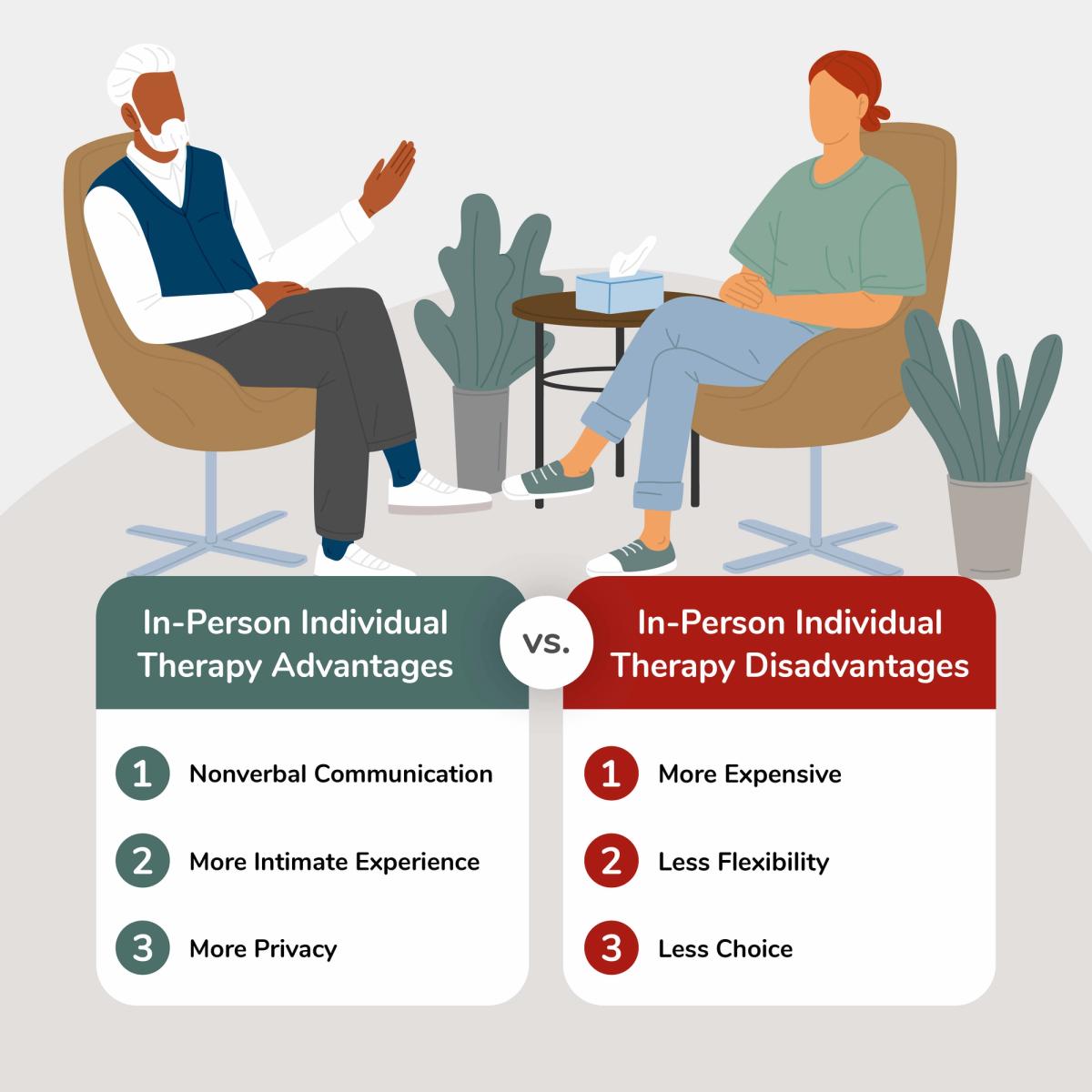Behavioral clues your teen may benefit from Individual Teen Counselling
Wiki Article
Discovering the Benefits of Mental Treatment for Adolescent Well-Being and Development
Mental treatment plays a pivotal function in the health and growth of teenagers. Adolescence is a turbulent duration noted by psychological and social challenges. Treatment supplies an organized atmosphere for teenagers to verbalize their feelings and challenge their struggles. It furnishes them with vital devices for strength and communication. As they browse this developmental phase, the effect of therapy can be extensive. What details benefits can emerge from such support during these formative years?
Recognizing the Teenage Mind: Challenges and Stress
As teens browse the intricacies of their developmental stage, they face numerous obstacles and stress that can significantly affect their mental wellness. This duration is marked by significant physical, psychological, and social adjustments, which can generate feelings of confusion and unpredictability. Peer impact increases, commonly causing a struggle for approval and identity. Academic expectations can develop extra stress, as the stress to stand out places in a significantly competitive environment.The development of social media presents a new layer of intricacy, where contrasts to curated online characters can worsen sensations of inadequacy and anxiousness. These aspects can bring about psychological distress, consisting of stress and anxiety, clinical depression, and low self-confidence. Understanding these difficulties is important for moms and dads, educators, and mental health and wellness specialists, as it offers understanding into the teenage experience and highlights the need for supportive interventions to cultivate resilience and well-being throughout this vital developing phase.
Producing a Safe Area for Expression
Creating a risk-free space for expression is crucial for adolescents navigating their troubled developing phase. In healing settings, this environment fosters open dialogue, enabling teens to interact their sensations without concern of judgment. Such areas enable them to explore their feelings and thoughts, which is imperative for understanding their identities and experiences.When adolescents feel protected, they are more probable to share their battles, consisting of anxiousness, clinical depression, or social problems. This open interaction can cause much deeper understandings and promote individual growth.
Additionally, a risk-free space encourages creativity and self-reflection, giving teenagers the freedom to share themselves via different outlets, such as art or writing. Developing depend on between the therapist and the teenage is vital, as it underpins the efficiency of the therapeutic procedure. Inevitably, creating a safe area for expression acts as a structure for emotional recovery and personal advancement during these formative years.
Creating Coping Methods and Resilience

Therapists frequently present strategies such as mindfulness, journaling, and problem-solving abilities, allowing teenagers to handle their responses more effectively. Additionally, by participating in role-play situations, they practice exactly how to manage tough scenarios, strengthening their self-confidence. In time, these skills promote a sense of agency, gearing up teenagers with the tools to browse life's unpredictabilities. The growth of strength not just help in getting rid of instant difficulties but also prepares for much healthier emotional responses in adulthood, inevitably adding to lifelong well-being.
Enhancing Interaction Skills
Effective communication skills are necessary for teens as they navigate intricate social landscapes. Psychological therapy plays a vital function in enhancing these abilities, enabling adolescents to share their thoughts and emotions a lot more plainly. Through led sessions, specialists encourage teenagers to articulate their sensations, assisting in much better understanding in peer interactions and family characteristics.Therapy gives a safe area for practicing active listening, compassion, and assertiveness. These skills equip young adults to participate in purposeful conversations, resolve problems, and build stronger relationships. As they discover to interact effectively, they likewise obtain confidence in their capability to support on their own and their needs.
Furthermore, boosted communication skills add to psychological knowledge, allowing teens to acknowledge and react to the feelings of others. This holistic development promotes an encouraging setting, ultimately promoting overall health and social combination. With psychological therapy, young adults can grow these necessary abilities for a much healthier social experience.
Promoting Personal Development and Self-Discovery
Cultivating individual development and self-discovery in young adults entails a complex approach that urges understanding of individuality. This process likewise highlights the significance of structure resilience abilities and enhancing psychological recognition. With each other, these components develop a structure for healthier, a lot more confident people as they browse their developmental years.Comprehending Individuality
Just how do teenagers browse the complex landscape of individual identification as they endeavor for self-discovery and development? Throughout this see page formative period, they face Our site numerous impacts, including peers, household, and societal assumptions. Psychological therapy can function as a necessary device, supplying a secure room for expedition and representation. Via assisted discussions, young adults can verbalize their feelings and ideas, enabling them to understand their wishes, worths, and beliefs. This process cultivates a deeper recognition of their distinct identity, encouraging them to make informed options and develop a feeling of objective. As they take part in self-discovery, they find out to embrace their originality and navigate obstacles with greater clearness, inevitably enhancing their general health and personal development.Building Strength Abilities

Enhancing Psychological Recognition
Enhancing emotional recognition is important for young adults navigating the intricacies of adolescence, as it permits them to determine and recognize their feelings more properly. By participating in psychological therapy, teenagers find out to acknowledge their psychological responses and the triggers behind them. This procedure cultivates individual growth and self-discovery, enabling them to express their feelings and deal with obstacles more adeptly. As teenagers create emotional recognition, they grow compassion, improve connections, and boost communication skills. Furthermore, this enhanced awareness aids in decision-making, assisting them browse social stress and develop a sense of identity. Eventually, cultivating psychological awareness with therapy can bring about healthier coping mechanisms and a more balanced psychological state, essential for growing throughout these developmental years.Building Healthy Relationships and Assistance Systems
While traversing the complexities of teenage years, developing healthy connections and support systems is vital for young adults. These links offer psychological stability and a sense of belonging, vital during this developmental stage. Positive relationships with peers, family, and mentors can enhance self-esteem and resilience, enabling young adults to browse difficulties extra properly.Psychological therapy plays a pivotal role in promoting these partnerships by outfitting teenagers with communication and conflict-resolution abilities. Via therapy, they learn to share their sensations, comprehend different viewpoints, and establish boundaries, which are basic for preserving healthy communications.
Helpful networks encourage teenagers to look for help when required, decreasing seclusion and promoting psychological wellness. When teens feel attached to their support group, they are more probable to participate in positive behaviors and make educated decisions. Generally, the farming of healthy connections and assistance systems contributes in promoting teen well-being and personal development
Regularly Asked Inquiries
How Do I Find a Competent Therapist for My Teenager?
To locate a certified therapist for a teenager, one should look for referrals from medical care companies, research study credentials online, examine evaluations, and determine the therapist concentrates on teen problems, fostering an encouraging setting for development.What Are the Costs Associated With Psychological Therapy for Teenagers?
The expenses related to psychological therapy for teenagers vary widely, generally varying from $50 to $250 per session. Insurance insurance coverage, moving range charges, and neighborhood resources can affect cost and ease of access for families looking for support.
Exactly How Frequently Should Teenagers Participate In Therapy Procedure?
Teenagers ought to preferably attend treatment sessions weekly or biweekly, depending on specific needs. Constant sessions can cultivate a safe area for expression, while allowing therapists to check progress and change approaches properly in time.Can Treatment Work for All Teens?
Treatment can be reliable for many teens, however specific outcomes vary. Elements such as individual conditions, visibility to the procedure, and the therapeutic technique used all affect its effectiveness for each adolescent.What Should Parents Do During Their Teenager's Therapy Process?
Parents must actively sustain their young adult's therapy procedure by maintaining open interaction, appreciating privacy, going to sessions if welcomed, and motivating their kid's efforts (Individual Counselling Services). Comprehending and patience are essential as teens browse their individual growth tripPsychological treatment plays a crucial duty in the well-being and development of teens. By engaging in mental therapy, teens find out to identify their psychological actions and the triggers behind them. Mental treatment plays a crucial duty in promoting these connections by gearing up adolescents with interaction and conflict-resolution abilities. Teens should preferably participate in treatment sessions weekly or biweekly, depending on private requirements. Parents need to proactively support their young adult's therapy process by keeping open communication, valuing privacy, participating in sessions if welcomed, and encouraging their youngster's efforts.
Report this wiki page